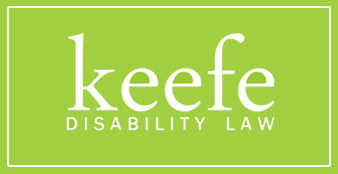 Traumatic brain injuries (TBI) range from mild concussions to severe brain damage, and are commonly caused by a sudden blow to the head. Most people who suffer these injuries will heal over time, but in some cases the condition can cause a much more difficult-to-treat condition known as post-traumatic stress disorder (PTSD).
Traumatic brain injuries (TBI) range from mild concussions to severe brain damage, and are commonly caused by a sudden blow to the head. Most people who suffer these injuries will heal over time, but in some cases the condition can cause a much more difficult-to-treat condition known as post-traumatic stress disorder (PTSD).
The Relationship Between PTSD and Traumatic Brain Injury
Military studies first confirmed the link between PTSD and brain injuries, but it is important to note that anyone, anywhere, can develop PTSD. Car accidents, house fires, domestic violence, assault, shootings, and rape are common instances where the victim will suffer from both physical and emotional trauma that eventually manifests as PTSD.
PTSD and TBI both affect the brain, and have a number of overlapping symptoms. As a result, it may be difficult to know which condition is causing the problem. Common symptoms of both conditions include:
- Headaches
- Dizziness and nausea
- Fatigue
- Difficult falling or staying asleep
- Vision problems
- Noise, smell, or light sensitivity
- Cognitive problems
- Loss of memory
- Difficulty concentrating
- Problems remembering words or names
- Depression
- Anxiety
- Anger or irritability
- Personality changes
Could I Have Developed PTSD From a Brain Injury?
As the brain is not fully understood by medical science, people with TBI can have a wide range of symptoms. The number and degree of symptoms a patient suffers can make recovery extremely difficult, frustrating, and stressful. As the two conditions overlap with one another, TBI can make PTSD worse, and vice versa. For this reason, it is vital to have a proper diagnosis of your condition in order to get the most effective treatment.
Symptoms of PTSD may be aggravated side effects of TBI, which can be severely debilitating or even life-threatening. The most telltale signs of PTSD include:
- Flashbacks. Patients are often plagued by intrusive and disturbing memories of the trauma they have suffered, which can be triggered at any time by everyday events. Flashbacks are not just recalled memories, they force the victims to relive the trauma in excruciating detail over and over again. These repeated and uncontrollable visions may happen when the person is awake, asleep, or both.
- Isolation. While people with TBI may feel as if they are alone, the isolation associated with PTSD is slightly different. Patients will usually decline invitations and avoid leaving the house because they do not feel safe in the outside world. Some will avoid communicating with others even by phone, and remain house-bound in order to limit their exposure to possible flashback triggers.
- Detachment. Many PTSD sufferers will be so overwhelmed by emotions that they experience what is called emotional numbness. Basically, the person’s brain is attempting to cope with the stress of unwanted emotions by feeling nothing at all. A person may be unresponsive, never seem to be happy, or fail to enjoy anything in his or her life. This often leads to a loss of intimacy with spouses, and can even result in divorce.
- Hypervigilance. Some patients experience hypervigilance, or a heightened sense of awareness of their surroundings. They are constantly on the alert for threats, even if there are none present. This places an incredible strain on the heart, body, and physical health of the patient, and patients are often unable to shut down this response when it is time to sleep. The condition can lead to vivid nightmares, night sweats, violence during sleep, and a resulting fatigue during waking hours from improper rest.
- Instability. PTSD may be a mental disorder, but its symptoms can result in physical damage. Feelings of anger, shame, guilt, or fear may cause a victim to abuse alcohol and drugs to numb the mind. Others may engage in reckless behavior or physical aggression due to an inability to talk about the problem, and some attempt suicide to escape the trauma.
A diagnosis of PTSD does not condemn a victim to suffering the condition forever. There are many highly effective treatments for the condition, and the Social Security Administration recognizes the condition as a disability, so you may not have to work while you recover. Please feel free to contact our law firm today to get started on your disability application, or download our free report, Five Most Frequently Asked Questions about Social Security Disability.
Are You Looking for a Social Security Disability Attorney in Boston, MA?
If you are looking to apply for social security disability, you need to speak with an experienced social security disability lawyer as soon as possible. Please contact us online or call our Natick Office directly at 508.283.5500 to schedule your free consultation.
|
Related Links: |


